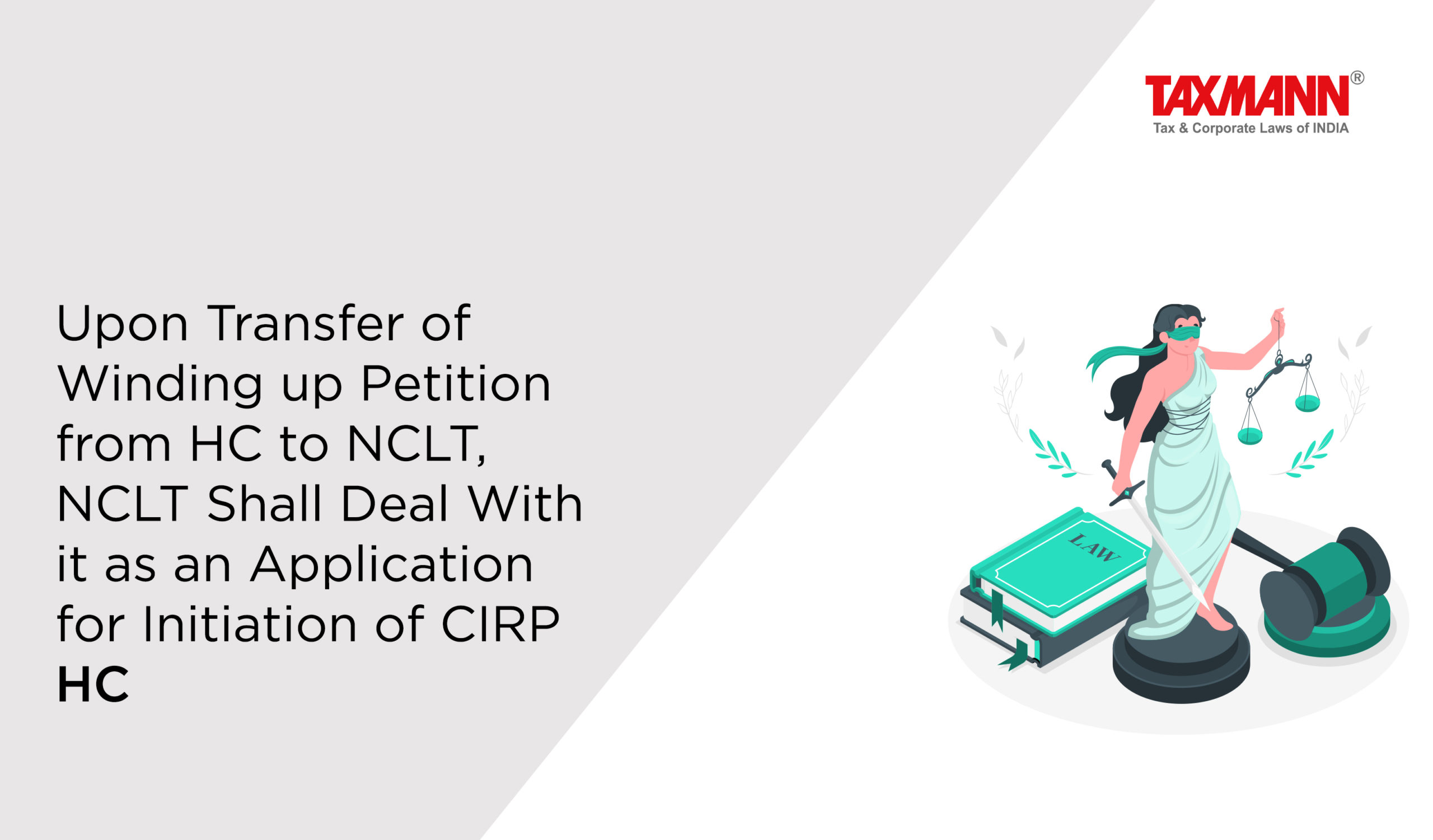Upon Transfer of Winding up Petition from HC to NCLT, NCLT Shall Deal With it as an Application for Initiation of CIRP | HC
- Blog|News|Insolvency and Bankruptcy Code|
- 2 Min Read
- By Taxmann
- |
- Last Updated on 10 August, 2023

Case Details: Ultratech Cement Ltd. v. Maxout Infrastructures (P.) Ltd. - [2023] 153 taxmann.com 240 (Delhi)
Judiciary and Counsel Details
-
- Prathiba M. Singh, J.
- Ms Deepa Sharma, Adv. for the Petitioner.
- Siddharth Mullick, Adv. for the Respondent.
Facts of the Case
In the instant case, a Winding up petition had been filed by the petitioner against Respondent company in respect of the unpaid dues. Same had been admitted to instant High Court earlier, and provisional liquidator was appointed.
However, said order was kept in abeyance, subject to deposit of Rs. 5 lakhs by respondent with registrar council of instant High Court. Consequently, the Respondent deposited said amount and subsequently, instant court transferred petition to NCLT.
Later, the NCLT directed petitioner to seek a clarification from instant court as to whether resolution ought to be explored by NCLT or company should have been taken directly into liquidation.
High Court Held
The High Court held that as per the second proviso to section 434(1)(c) of the Companies Act, 2013 and law laid down in Forech India Ltd. v. Edelweiss Assets Reconstruction Co. Ltd. [2019] 101 taxmann.com 451/152 SCL 145 (SC), once an application for transfer of winding up proceedings is filed, court must transfer such proceedings to NCLT which will deal it as an application for initiation of Corporate Insolvency Resolution Process (CIRP).
Thus, it has been clarified that the NCLT would have to strictly proceed in accordance with the said provision and treat the petition as an initiation of CIRP process.
List of Cases Reviewed
-
- Forech India Ltd. v. Edelweiss Assets Reconstruction Co. Ltd. [2019] 101 taxmann.com 451/152 SCL 145 (SC) (para 11) followed.
List of Cases Referred to
-
- Action Ispat & Power (P.) Ltd. v. Shyam Metalics & Energy Ltd. [2020] 122 taxmann.com 147/[2021] 164 SCL 375 (SC) (para 6)
- Forech India Ltd. v. Edelweiss Assets Reconstruction Co. Ltd. [2019] 101 taxmann.com 451/152 SCL 145 (SC) (para 6).
Disclaimer: The content/information published on the website is only for general information of the user and shall not be construed as legal advice. While the Taxmann has exercised reasonable efforts to ensure the veracity of information/content published, Taxmann shall be under no liability in any manner whatsoever for incorrect information, if any.

Taxmann Publications has a dedicated in-house Research & Editorial Team. This team consists of a team of Chartered Accountants, Company Secretaries, and Lawyers. This team works under the guidance and supervision of editor-in-chief Mr Rakesh Bhargava.
The Research and Editorial Team is responsible for developing reliable and accurate content for the readers. The team follows the six-sigma approach to achieve the benchmark of zero error in its publications and research platforms. The team ensures that the following publication guidelines are thoroughly followed while developing the content:
- The statutory material is obtained only from the authorized and reliable sources
- All the latest developments in the judicial and legislative fields are covered
- Prepare the analytical write-ups on current, controversial, and important issues to help the readers to understand the concept and its implications
- Every content published by Taxmann is complete, accurate and lucid
- All evidence-based statements are supported with proper reference to Section, Circular No., Notification No. or citations
- The golden rules of grammar, style and consistency are thoroughly followed
- Font and size that’s easy to read and remain consistent across all imprint and digital publications are applied



 CA | CS | CMA
CA | CS | CMA
